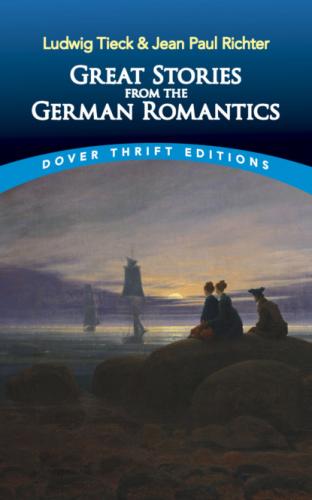Brought doubt within his breast;
These hellish arts detected,
A horror him possessed.
And now he sees the raging
Of his young princes dear;
Themselves to Hell engaging,
His voice no more they hear.
And forth, in wild commotion,
They rush, not knowing where;
In tumult like the ocean,
When mad his billows are.
Then, as these things assail’d him,
He wist not what to do;
His knighthood almost fail’d him
Amid that hellish crew.
Then to his soul appeareth
The hour the Duke did die;
His friend’s faint prayer he heareth,
He sees his fading eye.
And so his mind’s in armour,
And hope is conquering fear;
When see, the fiendish Charmer
Himself comes piping near!
His sword to draw he essayeth,
And smite the caitiff dead;
But as the music playeth,
His strength is from him fled.
And from the mountains issue
Crowds of distorted forms,
Of Dwarfs a boundless tissue
Come simmering round in swarms.
The youths, possess’d, are running
As frantic in the crowd:
In vain is force or cunning;
In vain to call aloud.
And hurries on by castle,
By tower and town, the rout;
Like imps in hellish wassail,
With cackling laugh and shout.
He too is in the rabble;
May not resist their force,
Must hear their deafening babble,
Attend their frantic course.
But now the Hill appeareth,
And music comes thereout;
And as the Phantoms hear it,
They halt, and raise a shout.
The Mountain starts asunder,
A motley crowd is seen;
This way and that they wander,
In red unearthly sheen.
Then his broad-sword he drew it,
And says: “Still true, though lost!”
And with mad force he heweth
Through that Infernal host.
His youths he sees (how gladly!)
Escaping through the vale;
The Fiends are fighting madly,
And threatening to prevail.
The Dwarfs, when hurt, fly downward,
And rise up cured again;
And other crowds rush onward,
And fight with might and main.
Then saw he from a distance
The children safe, and cried:
“They need not my assistance,
I care not what betide.”
His good broad-sword doth glitter
And flash i’ th’ noontide ray;
The Dwarfs, with wailing bitter,
And howls, depart away.
Safe at the valley’s ending,
The youths far off he spies;
Then faint and wounded, bending,
The hero falls and dies.
So his last hour o’ertook him,
Fighting like lion brave;
His truth, it ne’er forsook him,
He was faithful to the grave.
Now Eckart having perish’d,
The eldest son bore sway;
His memory still he cherish’d,
With grateful heart would say:
“From foes and wreck to save me,
Like lion grim he fought;
My throne, my life, he gave me,
And with his heart’s blood bought.”
And soon a wondrous rumour
The country round did fill,
That when a desp’rate humour
Doth send one to the Hill,
There straight a Shape will meet him
The Trusty Eckart’s ghost,
And wistfully entreat him
To turn, and not be lost.
There he, though dead, yet ever
True watch and ward doth hold;
Upon the Earth shall never
Be man so true and bold.
PART II
More than four centuries had elapsed since the Trusty Eckart’s death, when a noble Tannenhäuser, in the station of Imperial Counsellor, was living at Court in the highest estimation. The son of this knight surpassed in beauty all the other nobles of the land, and on this account was loved and prized by every one. Suddenly, however, after some mysterious incidents had been observed to happen to him, the young man disappeared; and no one knew or guessed what was become of him. Since the times of the Trusty Eckart, there had always been a story current in the land about the Venus-Hill; and many said that he had wandered thither, and was lost forever.
One of those that most lamented him was his young friend Friedrich von Wolfsburg. They had grown up together, and their mutual attachment seemed to each of them to have become a necessary of life. Tannenhäuser’s old father died: Friedrich married some years afterwards; already was a ring of merry children round him, and still he heard no tidings of his youthful friend; so that, in the end, he was forced to conclude him dead.
He was standing one evening under the gate of his Castle, when he perceived afar off a pilgrim travelling towards the mansion. The wayfaring man was clad in a strange garb; and his gait and gestures the Knight thought extremely singular. On his approaching nearer, Wolfsburg thought that he knew him; and at last he became convinced that the stranger was no other than his long-lost friend, the Tannenhäuser. He felt amazed, and a secret horror took possession of him, as he recognised distinctly these much-altered features.
The two friends embraced; then started back next moment; and gazed astonished at each other as at unknown beings. Of questions, of perplexed replies, were many. Friedrich often shuddered at the wild look of his friend, which seemed to burn as with unearthly light. The Tannenhäuser had reposed himself a day or two, when Friedrich learned that he was on a pilgrimage to Rome.
The two friends by and by
